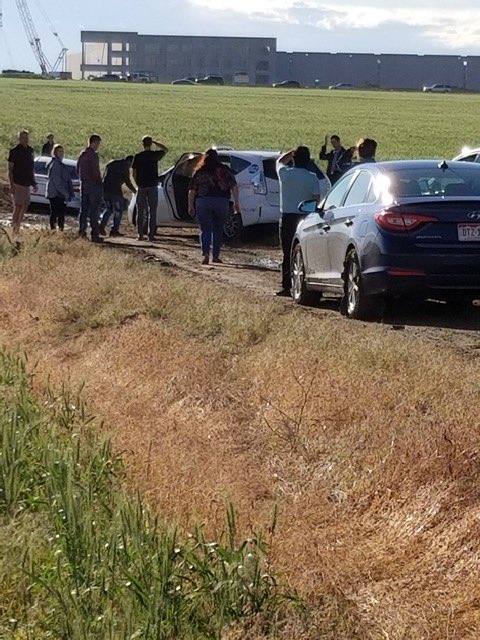I slowly drove around the neighborhood, trying to find the house where my daughter's friend lived so I can pick up my daughter. I had been wondering around in vain for 15+ minutes, also knocking on doors of multiple houses, getting suspicious looks from various home owners and greeted by loud dog barks. Google Map authoritatively told me that I have arrived at my destination, but my daughter was definitely nowhere to be seen.
I was gradually getting more and more frustrated, because now we were going to be late for our next activity. Then all of a sudden, it struck me. I could just read the street numbers of the houses and try to locate the house matching the address I have.
Turned out Google sent me to the wrong end of the neighborhood at the lower left corner of the map below instead of the upper corner of the map where the address should be. See that the entire neighborhood all had Bear Hill as part of their addresses.
A few days later, I got a phone call from my boss, uhh, I mean my wife. She was on her way to Denver.
"Google Map said there was a road closure, and recommended me to take an alternative route. Now I am in the middle of nowhere on a muddy road by myself. I don't think this road goes anywhere."
"If there's a road closure, you should be able to see detour signs. Just follow that." That's the only answer I could give.
Then a day later, I saw a news article titled:
Dozens of drivers were directed down a muddy dirt road in Colorado this weekend, resulting in a backup nearly 100 cars deep. So why did Google Maps point them there in the first place? apple.co/31TXbpg
"Hey, you lucked out. At least you didn't get stuck in the mud with a bunch of cars behind you." That's what I told my wife later. And her reply was, "See, I wasn't making this up!"
It is really interesting to think about this from a human evolution perspective. As technology tools are becoming better and more relied on, we human kind of are losing our navigation capabilities. And then when technology makes mistakes, we found ourselves completely stuck.
Whether Google Map authoritatively told me that I have arrived at my destination (a road closure in my wife's case) or used a more suggestive tone instead, such as, "You are probably at your destination now." We users would still simply believed in Google and then get equally frustrated when we found out that Google was wrong. So would it be better for Google to just say "I don't know how to do that" at the very beginning of our requests?
This is a tough decision for any AI service designers, me included. And I don't know what's the right answer either. Would you rather hear this?
"I am sorry, (insert your name here), I am afraid I can't do that."
It's a wasted 20 minutes for me (2 hours for my wife). What's next?
BTW: The easiest way to remember my blog address is http://lanny.lannyland.com




































































































































haha I remember when this happened! plus sometimes google maps would send me to the wrong field so I woul be late to soccer!
ReplyDelete